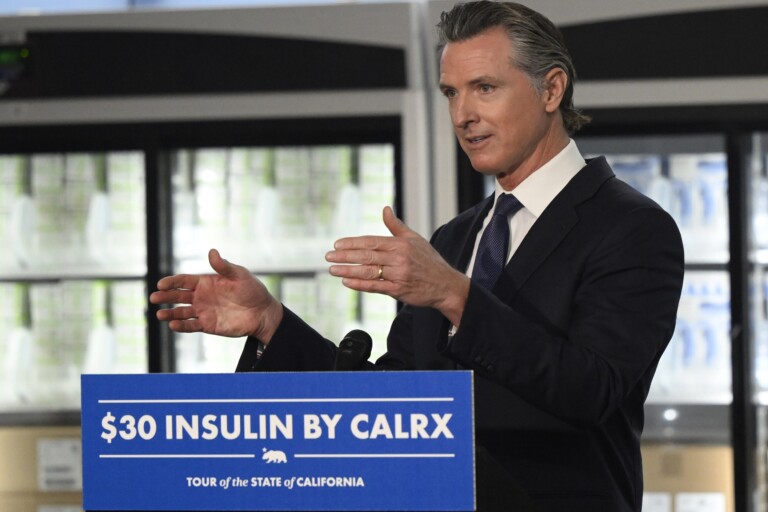Millions at risk of losing health insurance at end of 2025
Millions are at risk of losing their health insurance if Congress chooses not to renew subsidies from the Affordable Care Act.
That’s the latest estimate from the Congressional Budget Office, which found that 3.4 million Americans will lose their health insurance if subsidies are not renewed.
The Affordable Care Act (ACA) is in a precarious position with President-elect Donald Trump set to take over the White House again in January as Republicans have been critical of the health insurance law.
Next year, Congress would need to vote on the ACA and whether to extend its run as subsidies are scheduled to expire at the end of 2025.
Allison Robbert-Pool/Getty Images
“The subsidies significantly reduced monthly costs for people purchasing plans through the ACA marketplaces,” Michael Ryan, a finance expert and founder of michaelryanmoney.com, told Newsweek. “The enhanced subsidies introduced in 2021 expanded eligibility and saved enrollees over $700 a year, on average.”
The law, enacted by President Barack Obama, allowed millions of uninsured Americans to gain insurance, expanded Medicaid’s eligibility and also prevented insurance companies from denying coverage for those with preexisting conditions.
It also created tax subsidies, which were designed to lower premiums for Americans who need health insurance but can’t afford to pay full premiums.
While some are critical of the ACA for how it made the government more involved in the health care decisions of everyday Americans, 66 percent of those who receive the federal subsidies consider the ACA a success, according to a new eHealth report. And 81 percent said the subsidies were affordable.
Ryan said that if the subsidies are not renewed, premiums will double or even triple in some areas.
“Many will be forced to drop their coverage due to unaffordable costs,” Ryan said. “Who will this disproportionately affect? This will reverse the progress made in reducing racial and ethnic disparities in health care access.”
There’s still pushback to the ACA in America, though. Roughly 29 percent in the eHealth survey said they feel those at higher risk should pay for more coverage, with 73 percent to 76 percent saying smokers and heavy drinkers should pay more.
Overall, 56 percent said they wanted their premiums and out-of-pocket costs reduced.
Chris Fong, a Medicare specialist and CEO of Smile Insurance Group, said millions of Americans are at risk, including pregnant mothers, children and those with preexisting conditions. But he said there are still coverage gaps in the current system, which could be changed in the future.
“The ACA is so engrained that if there is any path to reformation it will need to be slow and deliberate,” Fong told Newsweek. “The current system does have gaps that leave people who don’t qualify for tax subsidies because they are referred to Medicaid but they can’t qualify for Medicaid under their state’s conditions for eligibility. This leaves a lot of people without health insurance.”
Robert Shapiro, a political science professor at Columbia University, said Trump and Republicans may target the ACA and its subsidies moving forward.
“There will be a fight over this and the Republicans should be cautious,” Shapiro told Newsweek.
But Kevin Thompson, a finance expert and founder and CEO of 9i Capital Group, said lawmakers are still likely to re-approve the subsidies, given the challenges they faced trying to dismantle the ACA during Trump’s first term.
“While John McCain is no longer here to oppose extreme measures, I think moderate Republicans will step up to make balanced decisions for Americans,” Thompson told Newsweek.
“Trump has expressed interest in replacing the ACA with a plan of his own design. However, he hasn’t presented a clear or actionable plan. Health care is complex, and Trump understands the risk to his legacy if he were to get it wrong.”





